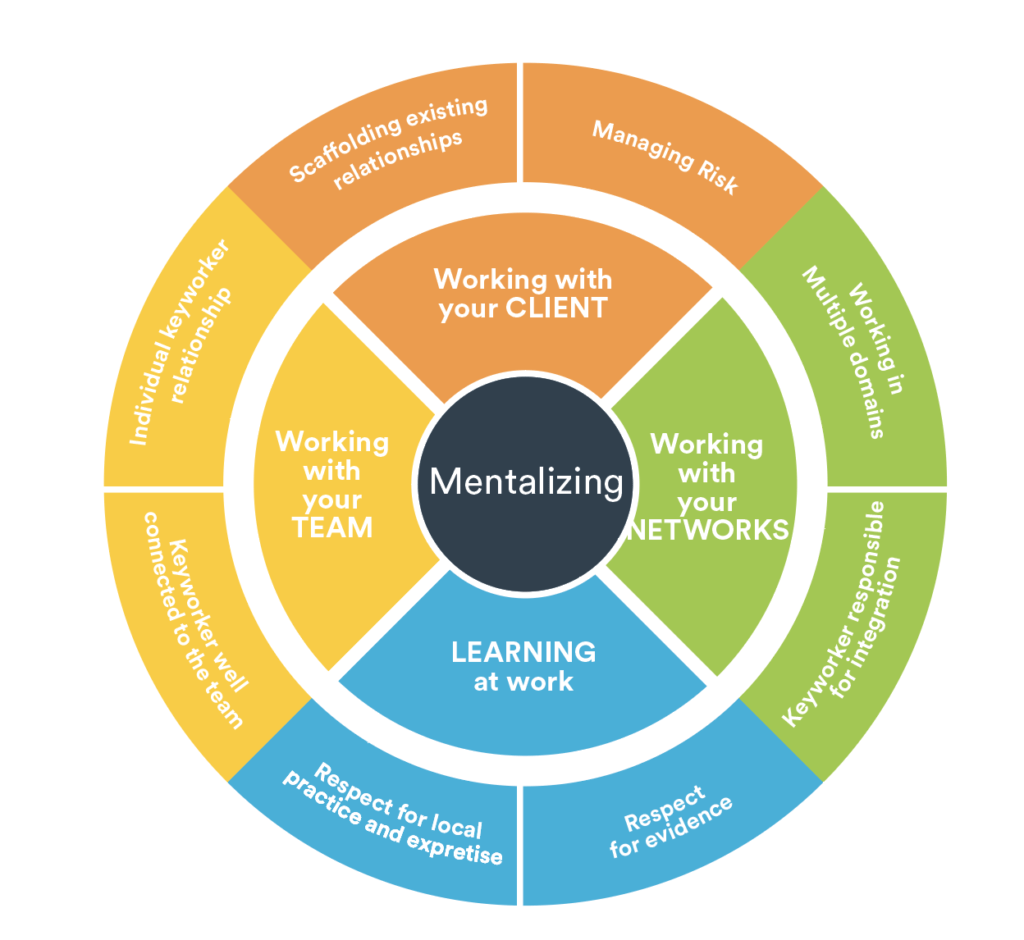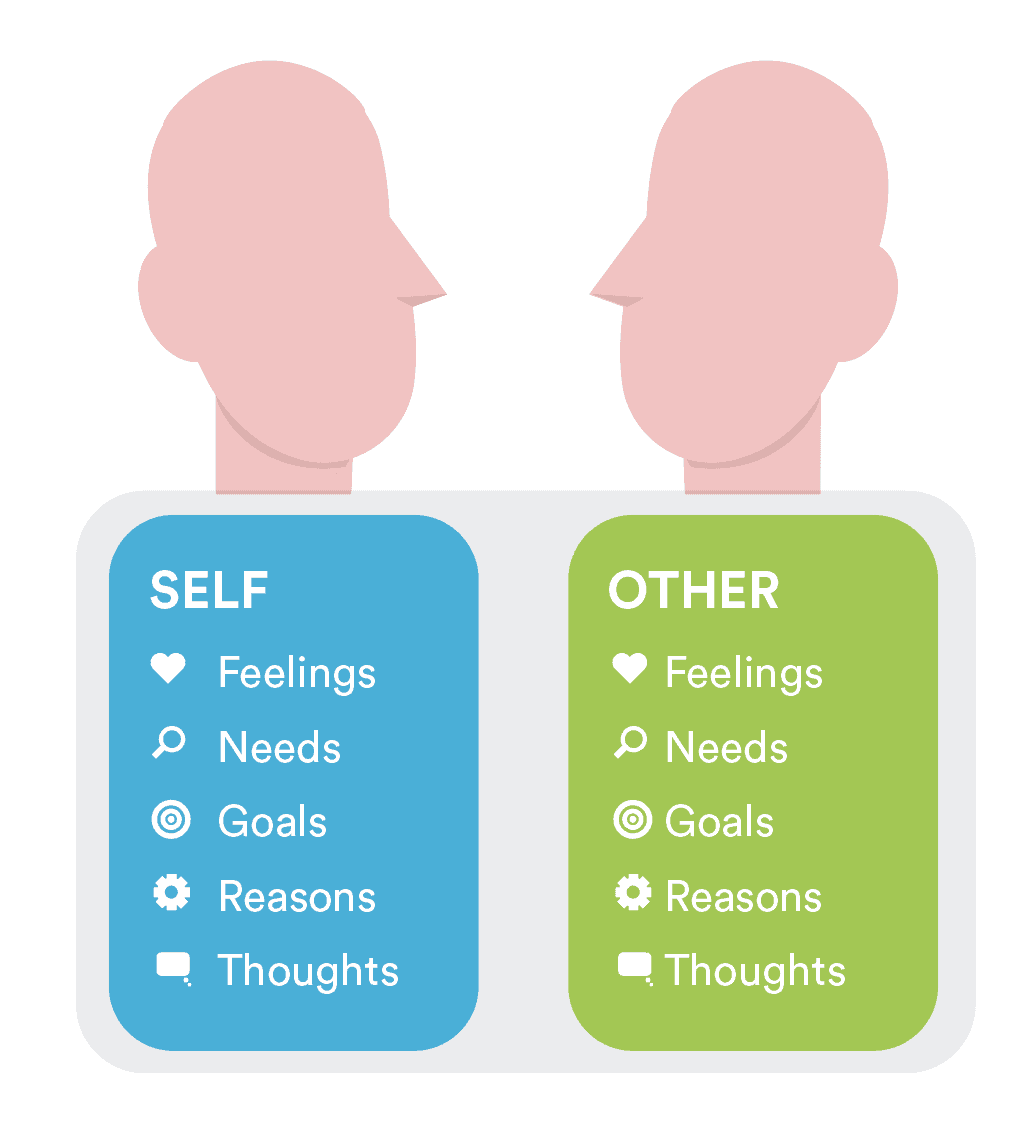Adaptive Mentalization Based Integrative Treatment & Mentalization Based Treatment
Tags: Psychology, Mentalization, Adolescents, Multidisciplinary, Treatment Team, Epistemic Trust, Integration, Collaborative, Adaptive Mentalization Based Integrative Treatment
Collaboration in the mental health community is imperative to patients’ health and well-being. As the mental health community grows, providers have adapted to working through a team-oriented lens.
The Anna Freud National Centre for Children and Families has conducted a plethora of research to understand the complexities of multidisciplinary mental health treatment teams. This process has been deemed adaptive mentalization-based integrative treatment (AMBIT), an adaptation to mentalization-based treatment (MBT), initially designed for working with people diagnosed with borderline personality disorder and others.

Utilizing AMBIT to support those with multiple needs allows providers and patients to understand the complexities of this system and provides a structure to mitigate the sometimes overwhelming feeling of having a multidisciplinary treatment team. Integrating these multiple systems encourages epistemic trust, a critical component of mentalizing
Mentalizing is how our minds interpret our own and others’ behaviors. This reflective process is often comprised of our understanding of thoughts and feelings through historical interactions and our understanding of various relational dynamics. Mentalizing allows us to cope with internal and external stressors adequately, encourage self-regulation, and generate or sustain interpersonal relationships. Interestingly, we only sometimes talk about mentalizing because the practice is characteristically automatic and implicit.
We can deduce that working with complex systems can inhibit epistemic trust, especially with those who have had negative experiences with previous treatment systems. Therefore, providers must understand the nuances of MBT and AMBIT to establish and maintain a trusting, helping relationship for both the patient and providers.

Providers able to establish epistemic trust with their patients encourage the integration of new, trustworthy, and relevant information to support their growth. This process takes time and needs more nurturing when integrating skills-based treatment. At the heart of mentalization-based treatment is maintaining a curious stance regarding the patient’s internal state, which provides insight into the cognitive processes and potential deficits in mentalizing.
As providers, we want to develop a relationship good enough that the people we work with can achieve their goals. Developing a trusting relationship is at the core of each provider’s role, a complex, sometimes volatile process solely dependent on the patient’s ability to form relationships with others. Utilizing mentalization-based treatment as a foundation, providers can help clients form trusting relationships. Mentalizing encourages providers to maintain a state of curiosity, authenticity, and flexibility while validating a client’s emotional experience. By focusing on understanding the patient’s unique way of thinking, providers step outside of an expert role and encourage collaboration between provider and patient. This process creates a working alliance with the patient and encourages a deeper connection.
These critical elements in a relationship are imperative to help create lasting change.
A person’s ability to mentalize starts during the early stages of development, as a child develops attachments with their caregivers. Parents are tasked to recognize a child’s implicit needs and respond accordingly. The parent’s ability to recognize the child’s needs and correctly meet those needs are the first steps in developing a secure attachment with the child and the start of developing trusting relationships. Each of these interactions compounds to fosters a stronger secure attachment and creates a schema for us to recognize qualities in others that can lead to new relationships. This process is imperative to establish a healthy support network.
In each established new relationship, we increase our ability to understand the thoughts, feelings, and behaviors of others and ourselves. From these interactions, we learn nuances derived from people’s cultures and various upbringings, which provides imperative information when attempting to understand another person’s internal workings. This new information can now be used to understand the multiple meanings behind verbal and non-verbal communication.
Mentalization-based treatment is not a skills-based intervention. MBT is a method to help regain a person’s capacity to mentalize when it is lost. The sole focus is to regain the process of understanding ourselves and others when in various emotional states. In many theoretical frameworks, providers recognize that patients know what they need to promote their healing. This ability is lost when a patient cannot mentalize. Therefore, re-establishing this capacity is an imperative process.
Working with multidisciplinary teams requires trust across all providers. This is a mirrored process of working one-on-one with patients and thus follows the same mentalizing approach. Adaptive Mentalization-Based Integrative Treatment provides a structure to encourage various treatment teams and balance the different sectors of a person’s healing. At the core of AMBIT is, again, mentalizing. As a patient’s needs may increase, providers must trust one another to carry out their responsibilities and understand another provider’s role. This process marks the importance of mentalizing for the provider and patient.
AMBIT has been utilized to help shape an understanding of the complexity of working with various treatment teams for both provider and patient while establishing a system to maintain epistemic trust.



You must be logged in to post a comment.